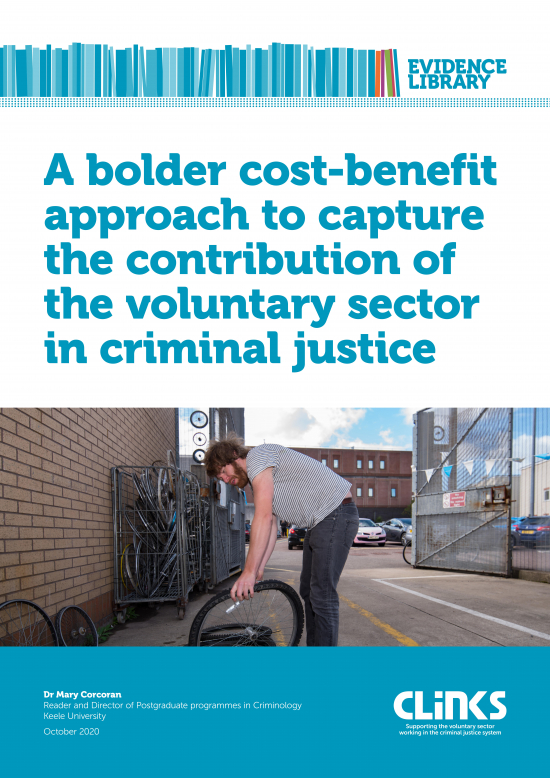
A bolder cost-benefit approach to capture the contribution of the voluntary sector in criminal justice
Why read this evidence review?
In this evidence review, Dr Mary Corcoran, Reader and Director of Postgraduate programmes in Criminology at Keele University provides an in-depth look at the rationale and uses of cost benefit analysis (CBA). She examines the use of this analysis in a number of different contexts, all of them particularly relevant to voluntary sector organisations working in the criminal justice system.
She covers a number of key issues:
- Calculating the costs and benefits of entering a procurement competition such as Transforming Rehabilitation
- Ensuring that all groups, particularly those with protected characteristics, are included in new markets
- The importance of robust information to base CBAs on
- The value of including ‘soft’ outcomes as well as headline issues such as reoffending rates
- The complexity of CBAs and the risks they involve
- Ensuring that commercial considerations do not warp your charity’s primary goals
- Principles of CBAs for the voluntary sector
- Ensuring that the work of the voluntary sector in the criminal justice system is not reduced to a simple consideration of value for money.
An online evidence base for the voluntary sector working in the criminal justice system
This article forms part of a series from Clinks, created to develop a far-reaching and accessible evidence base covering the most common types of activity undertaken within the criminal justice system. There are two main aims of this online series:
- To increase the extent to which the voluntary sector bases its services on the available evidence base
- To encourage commissioners to award contracts to organisations delivering an evidence-based approach.
Each article has been written by a leading academic with particular expertise on the topic in question. The topics are selected by Clinks’ members as areas of priority interest. Clinks intends to build a comprehensive directory of the best evidence available across a wide range of criminal justice topics within the next three years (2020-2023). The online evidence base is co-ordinated by Russell Webster on behalf of Clinks.